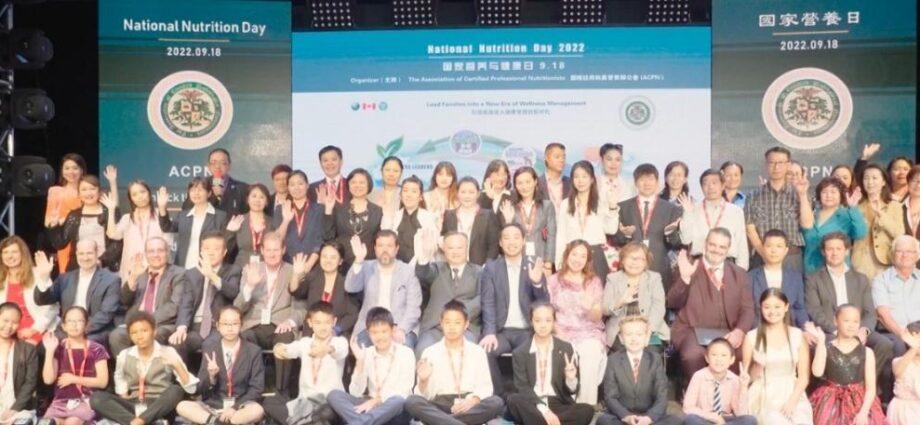On June 30, 2024, The Association of Certified Professional Nutritionists, in collaboration with the All-Canada Business Association of Industry and Commerce , and the National Education Society, successfully concluded the 2024 Life Cycle Wellness Management Competition. With the support of the Canadian Federal Government, the Community Foundations of Canada, and United Way Centraide Canada & Greater Toronto, dozens of families from the community were able to participate in the competition finals.

It is worth mentioning that the Member of Provincial Parliament, Mr. Billy Pang; City Councilor of Scarborough-Agincourt, Mr. Nick Mantas; Deputy Mayor of Richmond Hill, Mr. Godwin Chan; and York Regional Councilor Mr. Alan Ho for their letters of congratulations for bringing the event to a successful conclusion.

Member of Provincial Parliament, Mr. Billy Pang
City Councilor of Scarborough-Agincourt, Mr. Nick Mantas

Deputy Mayor of Richmond Hill, Mr. Godwin Chan
and York Regional Councilor Mr. Alan Ho
Before the competition began, Carrie Wei, the founder of the Life Cycle Wellness Management Competition and Secretary General of The Association of Certified Professional Nutritionists (ACPN), delivered an opening speech.

She explained why & what’s life cycle wellness management and She mentioned that since the program’s inception in 2019, the Life Cycle Competition has witnessed numerous families moving towards health to raising children to grow up healthy. Then these children will inspire their families, and even the community, to scientifically manage their health.

We want to take a moment to express special thanks to the ACPN Academic Committee for providing the world’s leading health management science guidance to the contestants, ensuring that they have access to most cutting-edge professional knowledge.

(Link science to community daily life wellness needs:
Special thanks to the countless outstanding contestants and families for sharing their valuable experiences with the community on how to connect science with daily health needs, laying the scientific and practical foundation for leading a larger community to manage lifecycle health and sustainable development of community health.

Additionally, Edward Zheng, President of the All-Canada Business Association of Industry and Commerce, delivered a speech, paying tribute to the strong support of the All-Canada Business Association of Industry and Commerce for providing detailed information on the world’s leading health industry and related sciences. For example: How to ensure the safety and bioactivity of natural ingredients? – HOW TO ENSURE the SAFETY AND BIOLOGICAL ACTIVITY OF NATURAL INGREDIENTS?

Edward Zheng, President of the All-Canada Business Association of Industry and Commerce (CBAIC)
Meanwhile, the President of the Canada-Wide Business Association of Industry and Commerce (CBAIC), Mr. Edward Zheng, acknowledged its support for the competition with their extraordinary health industry expertise.
In addition, the CBAIC works to connect local communities with the newest scientific innovation in health sciences in association with the National Education Society. Together, the organizations are able to provide the latest and greatest health science solutions to local families, as well as implementing education of periodic life and health science and its real-life day-to-day applications.

(Kids/Youth Innovation – Reports from Young Reporters : https://youtu.be/hQRr-vsOIrA)
The finals of the life cycle wellness management competition are rich and colorful, including life cycle health management which includes several age groups: 4-8, 8-12, and 13-18. It aims to fully demonstrate the scientific health management capabilities of contestants of all ages and their scientific leadership in family wellness management.

After more than six months of preparation, and under the systematic health science training and guidance of the ACPN health management scientists and expert team, the contestants delivered wonderful speeches and very valuable experiences sharing how they connect the world’s leading science with the daily wellness needs of individuals.

During the event, experts, families, children and adolescents had in-depth interactive exchanges to discuss the future trends and practical methods of health management. Participants focused on a number of important topics, such as:
- What is junk food and why is it unhealthy?
- How can I grow taller?
- 5 Food Groups for Kids & Their Nutrition
- How Functional Nutrient – Lutein Supports Kids’ Vision & Learning
- The importance of Omega-3 for child development
- How to Manage Our Daily Stresses?
- Stroke is no Joke
- BALANCED DIET TO STAY HEALTHY
- Why Does Eating Fruit Provide Health Benefits?
- How Social Media Influences OUR FOOD CHOICES – and how to develop good eating habits in the world of cyberspace and AI ?
- How to MANAGE IRRITABLE BOWEL SYNDROME?
- The Importance of Sleep
- Mindful Eating – How to scientifically choose ,andconsciously link the healthy food to our body needs?

Establish the Three Core Forces Necessary for Scientifically Managing Life Cycle Wellness
The purpose of the Life-Cycle Wellness-Management Competition is to establish 3 major forces to improve health: The power of science, smart education, and wellness leadership.

3 types of holo-information (Comprehensive and Complete Information): Health-Related Science, Industry, and Life Bio-Markers

With the blessing of these three forces, we will explore 3 types of Holo-information (Comprehensive and Complete Information): Health-Related Science, Industry, and Life Bio-Markers. Armed with these 3 holo-information supports, we can evaluate our health status in a more systematic, objective and scientific manner, make more accurate wellness plans and decisions, and manage health more safely and effectively. Further, we can better identify individual nutritional needs and make better decisions regarding health, allowing people to intelligently and rationally make individual purchase decisions and manage their body scientifically.
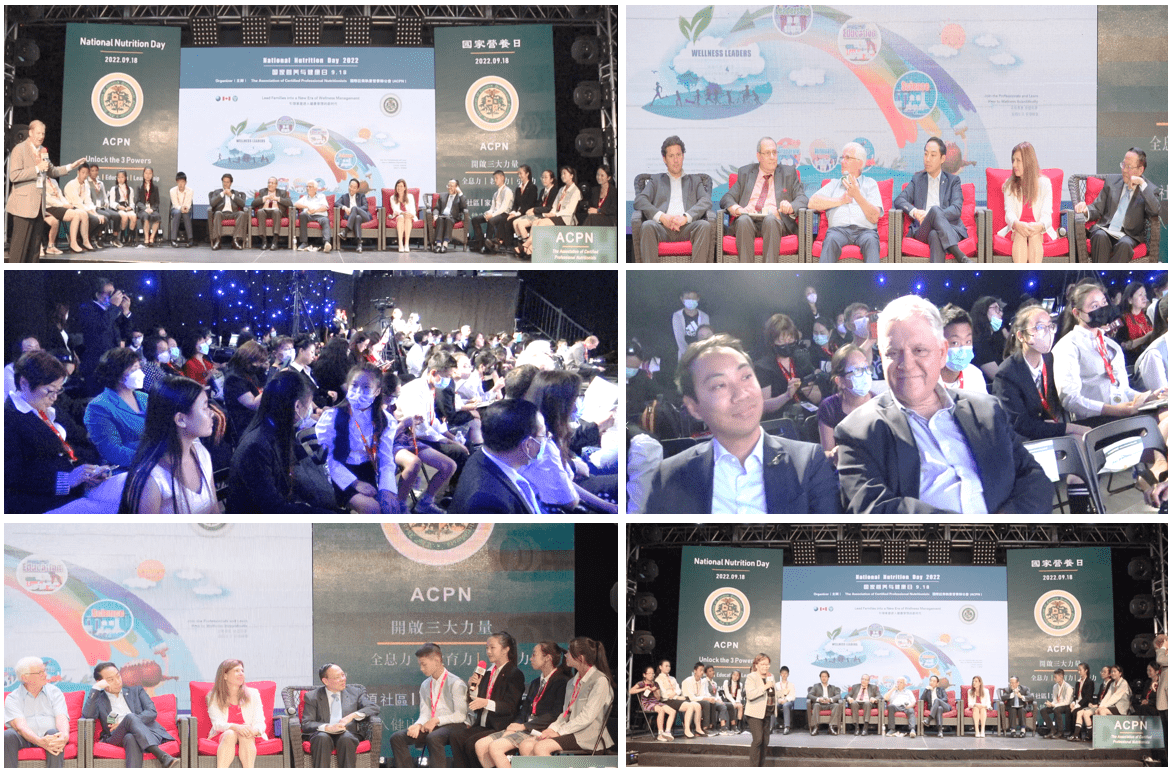
In addition, we can make better and smarter health decisions based on personal nutritional needs, make more rational purchasing decisions and manage their bodies scientifically and efficiently. (link science to community daily life wellness needs: https://youtu.be/q4O7gBSqhUA )
Experience sharing of connecting world-leading science with daily health needs
The topics chosen by each of the finalists revolve around bringing very valuable experience on how to connect science with daily health needs. Using three core strengths: holographic science, wisdom education, and health leadership, explore three types of holographic information (comprehensive and complete information): scientific holography, industrial holography, and life (bio-markers) holography. In this way, health can be improved comprehensively and scientifically.

The youngest contestant in this competition, 4-year-old Daphne, shared how to distinguish between junk food and healthy food.

Daphne’s mother shared the changes in Daphne after participating in this competition. During the preparation process, Daphne learned a lot about health science knowledge. For this, she is very grateful to the organizer ACPN for providing the children with an opportunity to help improve their courage, language skills, life skills, etc.

7-year-old Alexis shares 5 food groups for kids and their nutrition.

Alexis’s father is very grateful to the organizer ACPN for providing the platform. He is also very happy and proud of his daughter. Through participating in the competition, he found that Alexis quickly opened the door to her thinking and thought about many nutrition-related topics that even her parents had not considered. He believes that this is just the beginning. Alexis will do much better in the future and she will definitely become a little CEO who leads the family to scientifically manage the future of health.

8-year-old Andersson shared the topic of “The Importance of Omega-3 Nutrients for Children”.

It is worth mentioning that (The Importance of Omega-3 Nutrients for Children) was designed and completed in about 5 months with the cooperation of the school principal, Ms. Wright, parents, and the ACPN Academic Committee.
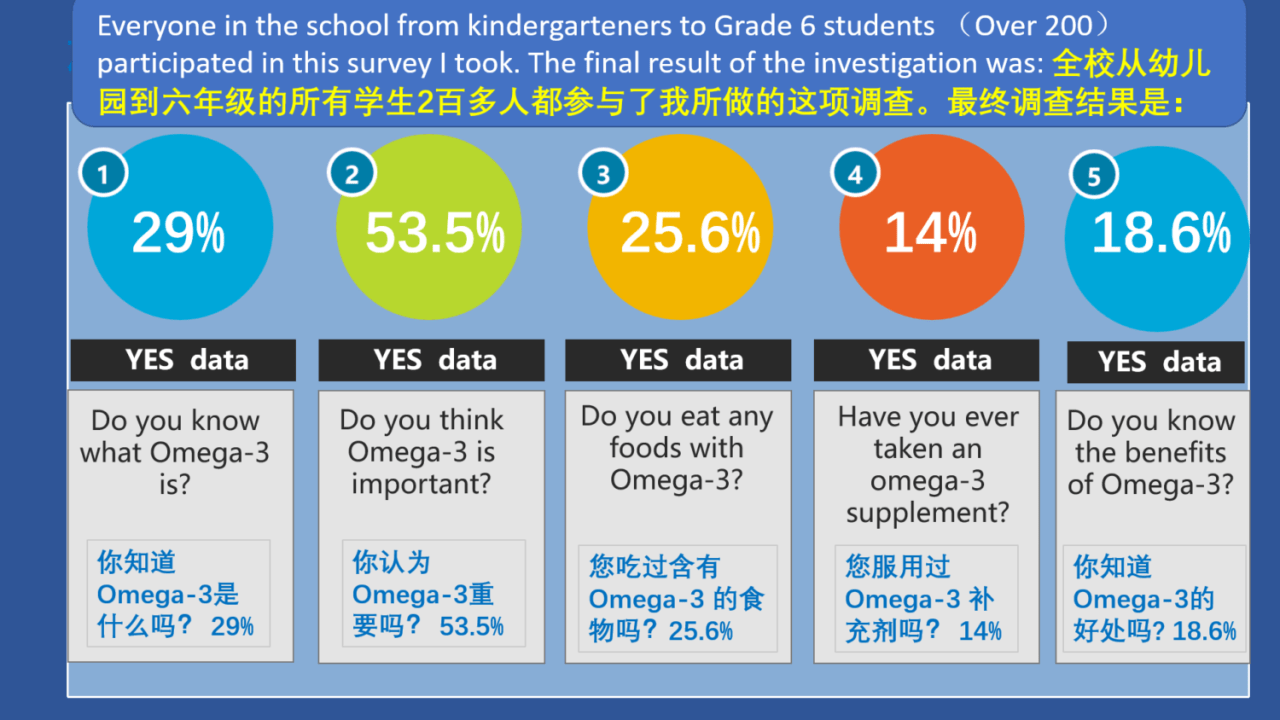
Anderson designed a questionnaire about Omega-3, and all students from kindergarten to sixth grade responded to the survey. We learned how many children know about Omega-3, and whether they know how the human body absorbs Omega-3 and other scientific knowledge.
Catherine, aged 9, shared her experience on how to get a good sleep. She chose this topic because she still felt sleepy and tired every morning. In the process of preparing for the competition, Catherine has been looking for answers to solve her sleep problems, and finally found the answer she was seeking! Now she is very happy because she has a healthy and comfortable sleep every day and is full of energy.

Catherine analyzes how to successfully improve sleep from the perspective of lifestyle habits (such as listening to quiet and beautiful stories instead of exciting stories before going to bed) and nutritional science (how the functional nutrients contained in different foods help sleep). For example: bananas are not only delicious, but also contain magnesium and potassium, which can relax muscles and make it easier for you to fall asleep; milk contains a substance called tryptophan, which can promote sleep. Nuts: Especially almonds, which are rich in magnesium, can help relax muscles and improve sleep quality. Cherries contain natural melatonin, which can help regulate sleep cycles and make it easier for us to fall asleep.
Catherine’s parents shared their experience in preparing their two daughters (Lula, 6, and Catherine, 9) for the competition.

“The children have changed a lot in the process of preparing for this competition, far beyond our expectations. Because at the beginning, when we got this topic, we didn’t have any idea, and then we discussed with the children, hey, what topics are of interest, or what kind of troubles they encountered.”
Later, the elder sister found that she had not slept well recently, and the 6-year-old sister Lula found that she could not play the ride on the slide in the community swimming pool that she loved because she was four centimeters too short. Then we worked together to locate the topics of these two speeches. The elder sisters went together to research their ideas and materials. More importantly, I think that this practice process gave them a lot of confidence. They found that through their own efforts, they were not afraid of difficulties, faced them, and solved them. In fact, in the end we will obtain a very good result.
So, when we look back at the whole process, we will find that this is actually a process of project management for a child, and also a process of teamwork for our whole family. The children found problems, found causes, found solutions, and practiced them very well, and achieved phased results. It really gave them a lot of encouragement, and also gave us as parents a lot of confidence, because English is not the language that children they excel in, but we found that in this process, we can actually inspire children’s great confidence and their huge potential. So, thank you again ACPN for giving us such a good platform for display and sharing parent-child time with us. Thank you everyone, and finally wish all children a healthy, safe and happy childhood.”
The topic shared by 12-year-old Andrew is: Why Does Eating Fruit Provide Health Benefits? Why does eating fruit provide health benefits?

This is Andrew’s second time to participate in the competition. He has done a lot of research, and from a more scientific perspective, he now has a deeper understanding of the benefits of fruits, the disadvantages of eating too much fruit (What Are the Disadvantages of Overloading Fruits?), and how to eat fruits more scientifically. For this reason, his mother taught Andrew how to think logically and express the topic more scientifically. He often shares this scientific knowledge with his friends during lunch time at school, making him feel proud. Even the teacher is surprised by his professional scientific knowledge. Andrew expressed: I feel that I have grown a little bit. Every time I participate in the competition, I will learn from the children because of their special advantages, and then I learn a lot of knowledge points.

Andrew’s mother shared with everyone the changes in her child’s scientific learning during the preparation for this competition:
“Andrew presented a simple topic on the surface during the entire speech, but it contained very in-depth scientific information.
I feel that he has grown a lot in this process, because he participated in a competition three years ago, and he liked it very much in the first competition (https://youtu.be/SUt4fL_ZY6o ). He is very grateful to the organizer for providing a platform. He said that he would participate in this competition again because it can help him master a lot of knowledge and scientific principles, and then he knows not only how to keep us healthy, but also that a lot of scientific knowledge is needed to support and ensure our health.
In this process of the course, Andrew learned to express health through some professional terms in health science. Andrew said that he chose a more complex title this time. For this, he did a lot of in-depth understanding. In the process of memorizing and understanding, he also spent a lot of time and found a extensive information. Then he asked his mother: Do you think I should do this? Is it good to do this? I said that you have to find a way and learn to think logically, which also helps him improve his learning skills in other subjects.
I am very happy and proud that Andrew will share this scientific knowledge with his friends and lead his friends to grow healthily together.”
13 years old Haley shared her experience of BALANCED DIETTO STAY HEALTHY. Her speech started with her leg pain journey.

Haley’s mother is a researcher who spent a lot of time encouraging her children to change their picky eating habits. She never thought that her children could master nutrition science at such a young age. She was very surprised that her children could not only quickly master health science, but also use science to automatically correct bad habits such as being a picky eater.

Haley’s mother offered specific changes in her children during the preparation for this competition:
The children have changed a lot, which is very good, because I am a scientist myself; I know a lot about nutrition, but I don’t really expect them to know all the professional things. They are all picky eaters, and it is very difficult to make them change their eating habits. But now they understand the disadvantages of picky eaters and understand why from a scientific perspective, so I don’t have to worry about it.
Now, if the children go to school, they will not just pick bread and cheese to go to school, but choose to eat a more balanced meal, such as vegetables and protein. So now it has really changed Hayley’s life, and her sister’s. I am really grateful for the platform provided by ACPN, and thank the organizers for everything they have done for this event! Thank you!
The topic shared by 14-year-old Katelyn is How to Manage Our Daily Stresses. Katelyn mentioned: We all have stressful moments in our lives. Although we can’t make them disappear, there are ways to reduce them.

Katelyn helps people reduce stress from the perspective of spiritual and nutritional science. When people are already under great stress, they can manage stress scientifically through breathing, meditation, music, walking, or talking with friends or family, while understanding nutrition and health science.
The topics shared by 15-year-old Emily are: How social media affects our food choices, How to deal with the challenges of social media, and exploring healthier eating habits in the online world and AI environment.

For example, some social media deliberately promote diets (fruit and lots of soda and pop, etc.) that are not necessarily the best for our bodies and should definitely be avoided. Certain foods, such as cakes and cookies, do not contain many vitamins, minerals and fiber, so eliminating certain sweets is actually a good way to lose weight.

Emily also analyzed common Myths V.S. Facts to help people understand their body’s real needs and how to find reliable sources of information that are truly beneficial to health, such as Health Canada, the Canadian Nutrition Society, and The Association of Certified Professional Nutritionists (ACPN). At the same time, Emily is willing to lead every young person to make a difference, break the adverse effects of social media on health, understand the real nutrition science, and contribute to the establishment of a correct diet culture.

The host Paul specifically raised his concerns: I have a 16-year-old daughter, and I am also very worried about the impact of the media. Emily’s parents’ advice on this is: remind them from time to time, and in most cases, I think it is recommended that they keep trying and exploring it. Maybe after some twists and turns or failures, maybe they can truly realize the seriousness of the problem.
16-year-old Valenzia shared her experience and scientific solutions on health management of irritable bowel syndrome in this competition.

Valenzia also shared her experience in health management science leadership, such as how to share with students how to connect science with daily health needs through social media such as Instagram and related online channels, and encouraged more than 2,000 people in the school and the surrounding community to participate in the Life Cycle Health Management Competition. With her encouragement, more students participated in the competition.
Anna, a mother of three children, shared her experience of leading her family to participate in three consecutive competitions since 2019: Our whole family looks forward to ACPN’s Life Cycle Health Management Competition and Nutrition Day annual activities. We are very grateful to the organizers for providing these rare opportunities. The competition has a great role in promoting and helping children and parents, and it applies nutrition science to everyday life.
Anna mentioned that through the competition, the children have a deeper understanding of the effects of nutrition on the body, and know clearly what junk food is, and understand what kind of nutrition it is and what effects it has on the body. (https://youtu.be/54MQ9etV27Q )

For example, milk is good for bones, carrots are good for eyes, and meat is good for muscles and blood. The children are required to have a balanced breakfast with eggs, milk and fruits. Through the competition, other abilities of the children have also been greatly improved, such as the ability to communicate with others and the ability to give speeches. Even by watching some videos and animations of other contestants, they will become interested in this aspect. Parents will also be interested in some lecture topics, such as the application of Omega 3.
The topic of 17-year-old Victoria’s speech was: The Importance of Sleep.

Victoria believes that sleep is a big problem that many people have searched on Google countless times!

Therefore, she analyzes the sleep cycle and factors that affect sleep quality, and how sleep affects the development of adolescents and children, helping everyone to understand food and nutritional supplements that promote faster sleep from a scientific perspective, so as to solve the life problems caused by insomnia and sleep deficiency.
The theme of 18-year-old Sina’s speech was Mindful Eating – How to scientifically choose, and consciously link the healthy food to our body needs?

At the beginning of the speech, Sina asked: What did you eat for lunch yesterday? Sina mentioned that the reason why people often forget what they feed their bodies is because of habitual eating. People don’t even realize that the crisis of physical health is caused by eating habits, which is very dangerous. Therefore, Sina believes that it is very necessary to invest time and observe how eating habits are formed.
In the long run, what material input is provided to the body will definitely affect the output. To this end, Sina gave a lot of good advice: how to go from ignoring what you input to your body to realizing what you actually input to your body. How to be aware of the main ingredients of your daily diet, scientifically judge, avoid foods that are not good for your body, and consciously decide to eat that food and know why you do so.
How to make some improvements in the food we choose, halve it, or find healthier alternatives that are good for our body, such as when drinking coffee, try not to drink coffee and then see what method is more effective. So, some improvements are actually rewarding because it will lead to a positive direction for physical health – not a negative direction. Realizing this is very important for maintaining and improving health, so that we can do better.

Although the competition has ended, ACPN remains committed to continuing to explore lifecycle health management in partnership with scientists, experts, and communities, and to continue working in the community to bridge the gap between industry and consumers.
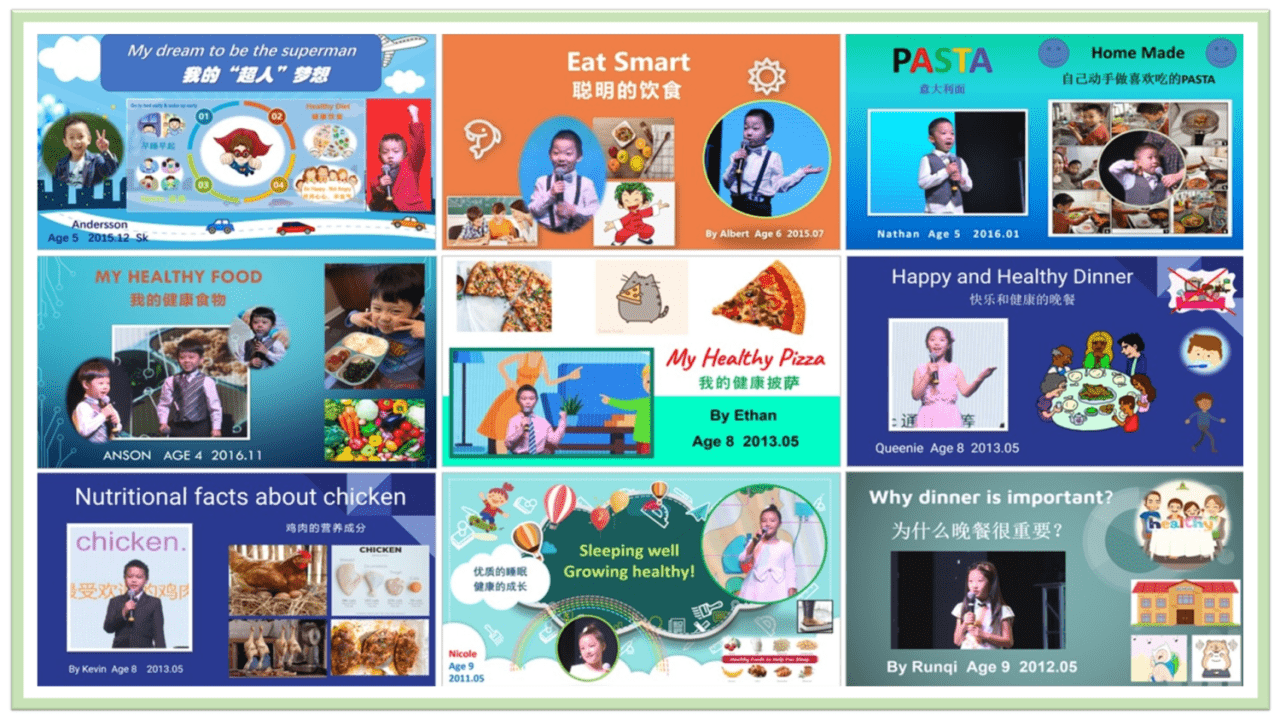
(4-8 years old Kid’s Wellness management experience sharing: https://youtu.be/BX0vnmmIS1c )
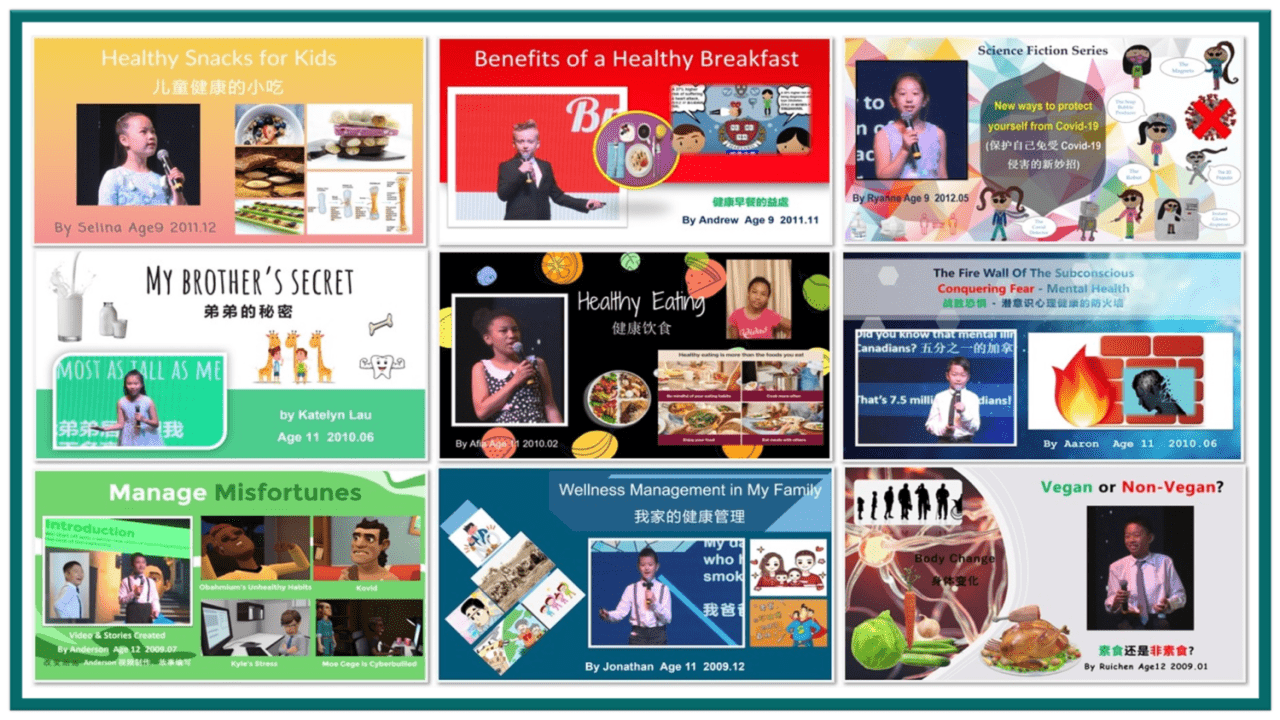
(9-12 years old Kid’s experience sharing for Life cycle wellness management:https://youtu.be/m2dHzUfmx9Q)
In the process of striving to connect science with the daily health needs of the community, ACPN organizes a variety of activities and trainings to build a cooperation platform for the scientific community, industry, professionals, families and children, and lead the community and family into a new era of manage life cycle Wellness scientifically.
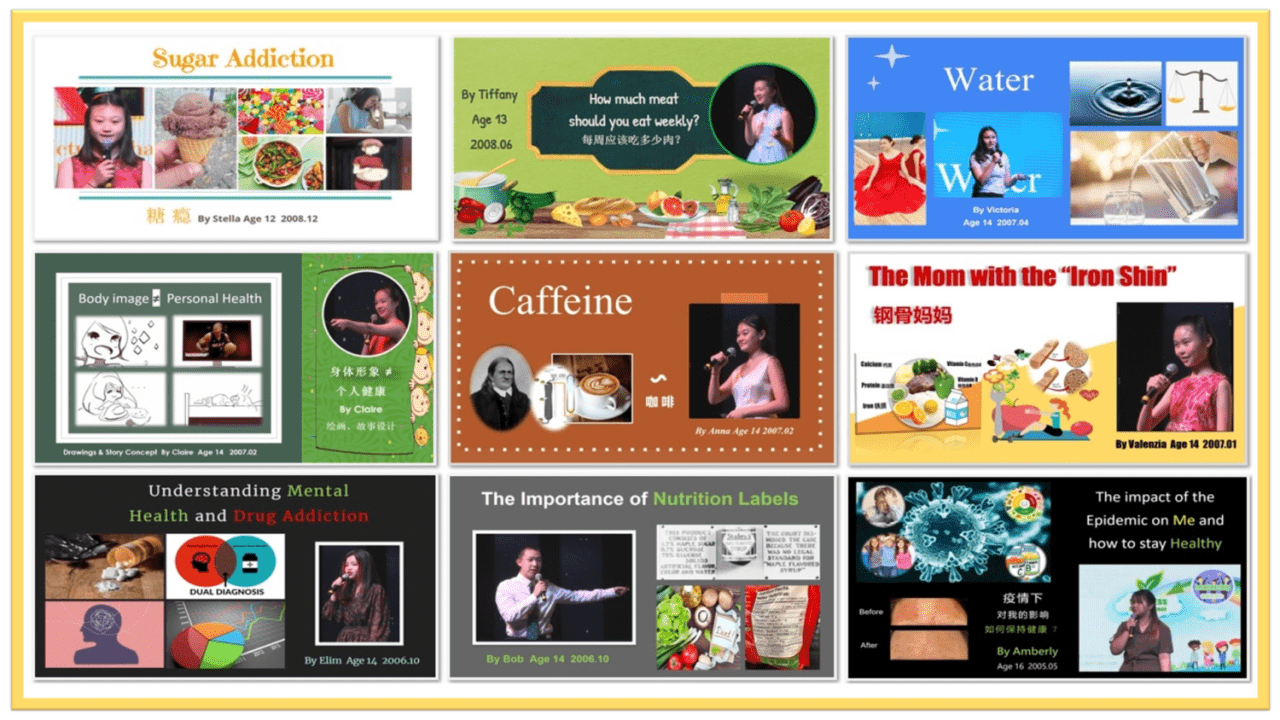
(13-18 years old group youth experience sharing for Life cycle wellness management: https://youtu.be/WyMX3n7Bpo8 )
– Leading the community and family into a new era of manage life cycle Wellness scientifically
In the process of connecting world-leading health sciences with community health science needs, ACPN has successfully completed relevant community projects supported by the federal government and has been highly recognized.

In acknowledgement of ACPN ’s efforts in completing federal government projects in the field and their hard work in the community, the Minister of International Trade, Export Promotion, Small Business and Economic Development, Honorable Mary Ng presented ACPN with a certificate of appreciation, acknowledged ACPN’s achievements, encouraged the continuation of their current efforts, thank ACPN for creating better opportunities through leadership, partnership and social responsibility, Congratulations on ACPN’s achievements and best wishes for ACPN continued success.

Hon Mary Ng presents a certificate of appreciation to ACPN

ACPN was also invited by Hon. MP Mary Ng to attend and speak at the Markham-Thornhill Community Services Recovery Fund Echo Announcement.

Finally, the ACPN, CBAIC, and National Education Society hope that this life cycle wellness management competition event will become a new turning point and milestone for every family, and successfully inspire all participants to look at life cycle wellness management from a new perspective, combining the health needs of daily life communities with advanced scientific innovations, creating a happier and better quality of life for global communities, ensuring that the United Nations Sustainable Development Goals are achieved scientifically and efficiently at the community level, and helping themselves, children, and young people become leaders in family and even global social science health management, leading and creating a better future.

